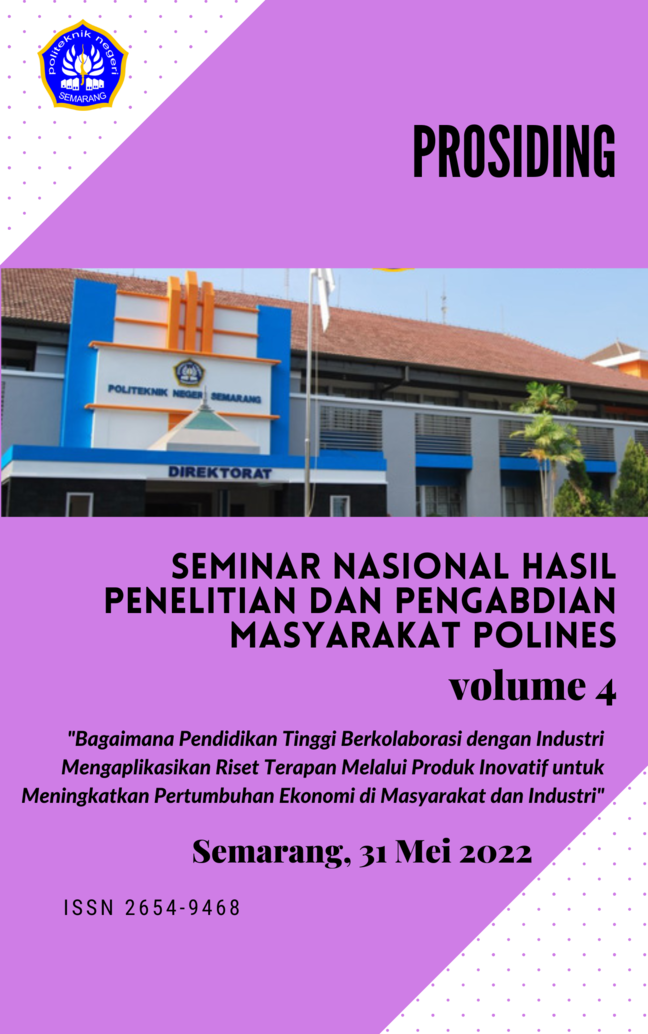MODEL “MARKETING EMPLOYABILITY SKILLS” PADA PROGRAM STUDI MANAJEMEN PEMASARAN
Keywords:
Basic soft skills, Digital and technical skills, Core marketing skills, Analytical skills, Customer insights skills, Job market appraisal, Marketing Employability SkillsAbstract
A number of studies show that the ultimate goal of students to study includes job offers and job status. The user dimension of graduates is an important consideration whether migrating education levels should be carried out or not. The problem of this research is how employability skills determine the decisions of users who graduate from Diploma III (DIII) or Bachelor's Degree Programs (D4/S1). The population of this research is the manager or owner of the company. While the sampling technique used in this study is the Purposive Sampling Method, in this case the manager or owner of a company in Central Java. For the number of samples = 107 Managers or company owners. The analysis technique of this research will use a multiple regression approach with semi deep interviews on the Marketing Employability Skills model. The research outputs are in the form of suggestions for managerial implications, the formulation of scientific articles, curriculum development and textbook materials. Managerial suggestions are intended for Marketing Management Study Program policies in formulating future study programs development policies.
References
Anasori, E., Bayighomog, S. W., De Vita, G., & Altinay, L. (2021). The mediating role of psychological distress between ostracism, work engagement, and turnover intentions: An analysis in the Cypriot hospitality context. International Journal of Hospitality Management, 94. doi:10.1016/j.ijhm.2020.102829
Bozionelos, N., Lin, C.-H., & Lee, K. Y. (2020). Enhancing the sustainability of employees' careers through training: The roles of career actors' openness and of supervisor support. Journal of Vocational Behavior, 117. doi:10.1016/j.jvb.2019.103333
Breen, L., Acosta-Gómez, J., Tomlinson, J., Medlinskiene, K., & Elies-Gomez, J. (2020). A preliminary insight into the role and importance of management skills in the prevention of occupational derailment: An exploratory analysis of UK and Spanish pharmacists. European Management Journal. doi:10.1016/j.emj.2020.02.008
Budworth, M.-H., Halinski, M., & Harrison, J. A. (2021). Trait gratitude and job search: the mediating role of perceived employability. Career Development International, ahead-of-print(ahead-of-print). doi:10.1108/CDI-08-2019-0206
Cao, C., Shang, L., & Meng, Q. (2020). Applying the Job Demands-Resources Model to exploring predictors of innovative teaching among university teachers. Teaching and Teacher Education, 89. doi:10.1016/j.tate.2019.103009
Cavaliere, V., Lombardi, S., & Sassetti, S. (2021). Entrepreneurial alertness and self-perceived employability: a virtuous marriage for career development. Personnel Review, ahead-of-print(ahead-of-print). doi:10.1108/PR-05-2020-0350
Cortellazzo, L., Bonesso, S., Gerli, F., & Batista-Foguet, J. M. (2020). Protean career orientation: Behavioral antecedents and employability outcomes. Journal of Vocational Behavior, 116. doi:10.1016/j.jvb.2019.103343
Di Fabio, A., & Kenny, M. E. (2019). Resources for enhancing employee and organizational well-being beyond personality traits: The promise of Emotional Intelligence and Positive Relational Management. Personality and Individual Differences, 151. doi:10.1016/j.paid.2019.02.022
Di Gregorio, A., Maggioni, I., Mauri, C., & Mazzucchelli, A. (2019). Employability skills for future marketing professionals. European Management Journal, 37(3), 251-258. doi:https://doi.org/10.1016/j.emj.2019.03.004
Ebner, K., Selenko, E., & Soucek, R. (2021). Perceived quality of internships and employability perceptions: the mediating role of career-entry worries. Education + Training, ahead-of-print(ahead-of-print). doi:10.1108/ET-02-2020-0037
Forrier, A., De Cuyper, N., & Philippaers, K. (2019). Employability and performance. Personnel Review, 48(5), 1299-1317. doi:10.1108/PR-04-2017-0098
Howard, M. C., & Reiley, P. J. (2020). Physical courage predicts relevant outcomes in associated contexts: The creation of a measure and empirical analysis into the construct. Journal of Business Research, 110, 80-94. doi:10.1016/j.jbusres.2019.12.015
I-Chi, W., Chin-Wen, L., Kuo-Ping, L., Ching-Hsin, W., & Cheng-Lin, T. (2021). Evaluate the Consumer Acceptance of AIoT-Based Unmanned Convenience Stores Based on Perceived Risks and Technological Acceptance Models. Mathematical Problems in Engineering, 2021. doi:http://dx.doi.org/10.1155/2021/4416270
Imam, H., & Chambel, M. J. (2020). Productivity or illusion? Assessing employees' behavior in an employability paradox. Employee Relations: The International Journal, 42(6), 1271-1289. doi:10.1108/ER-11-2019-0446
Jeon, W. (2021). Causal Model of Participation, Perceived Enjoyment, and Learning Attitudes in “the 0th Period Physical Education Class” of Middle Schools in South Korea. International Journal of Environmental Research and Public Health, 18(14), 7668. doi:http://dx.doi.org/10.3390/ijerph18147668
Kornelakis, A., & Petrakaki, D. I. (2020). Embedding employability skills in UK higher education: Between digitalization and marketization. Industry and Higher Education, 34, 290 - 297.
Lingmont, D. N. J., & Alexiou, A. (2020). The contingent effect of job automating technology awareness on perceived job insecurity: Exploring the moderating role of organizational culture. Technological Forecasting and Social Change, 161. doi:10.1016/j.techfore.2020.120302
Lodi, E., Zammitti, A., Magnano, P., Patrizi, P., & Santisi, G. (2020). Italian Adaption of Self-Perceived Employability Scale: Psychometric Properties and Relations with the Career Adaptability and Well-Being. Behavioral Sciences, 10.
Lysova, E. I., Jansen, P. G. W., Khapova, S. N., Plomp, J., & Tims, M. (2018). Examining calling as a double-edged sword for employability. Journal of Vocational Behavior, 104, 261-272. doi:10.1016/j.jvb.2017.11.006
Ma, Y., & Bennett, D. (2021). The relationship between higher education students' perceived employability, academic engagement and stress among students in China. Education + Training, ahead-of-print(ahead-of-print). doi:10.1108/ET-07-2020-0219
Nicholas, J. M. (2018). Marketable selves: Making sense of employability as a liberal arts undergraduate. Journal of Vocational Behavior, 109, 1-13. doi:10.1016/j.jvb.2018.09.001
Rothwell, A., Vargas, R., Sánchez-Queija, M. I., & Parra, Ã. (2018). Self-perceived employability in Spain. Education + Training, 60(3), 226-237. doi:10.1108/ET-03-2017-0037
Torres Valdés Rosa, M., Lorenzo Ãlvarez, C., Castro Spila, J., & Santa Soriano, A. (2019). Relational university, learning and entrepreneurship ecosystems for sustainable tourism. Journal of Science and Technology Policy Management, 10(4), 905-926. doi:10.1108/JSTPM-03-2018-0032
Tuliao, M. D., & Yao, C. W. (2019). Soft skill development for employability. Higher Education, Skills and Work-Based Learning, 9(3), 250-263. doi:10.1108/HESWBL-03-2018-0027
Yeves, J., Bargsted, M., Venegas-Muggli, J. I., & Merino, C. (2021). Career success is not always an outcome: its mediating role between competence employability model and perceived employability. Career Development International, ahead-of-print(ahead-of-print). doi:10.1108/CDI-06-2020-0141






